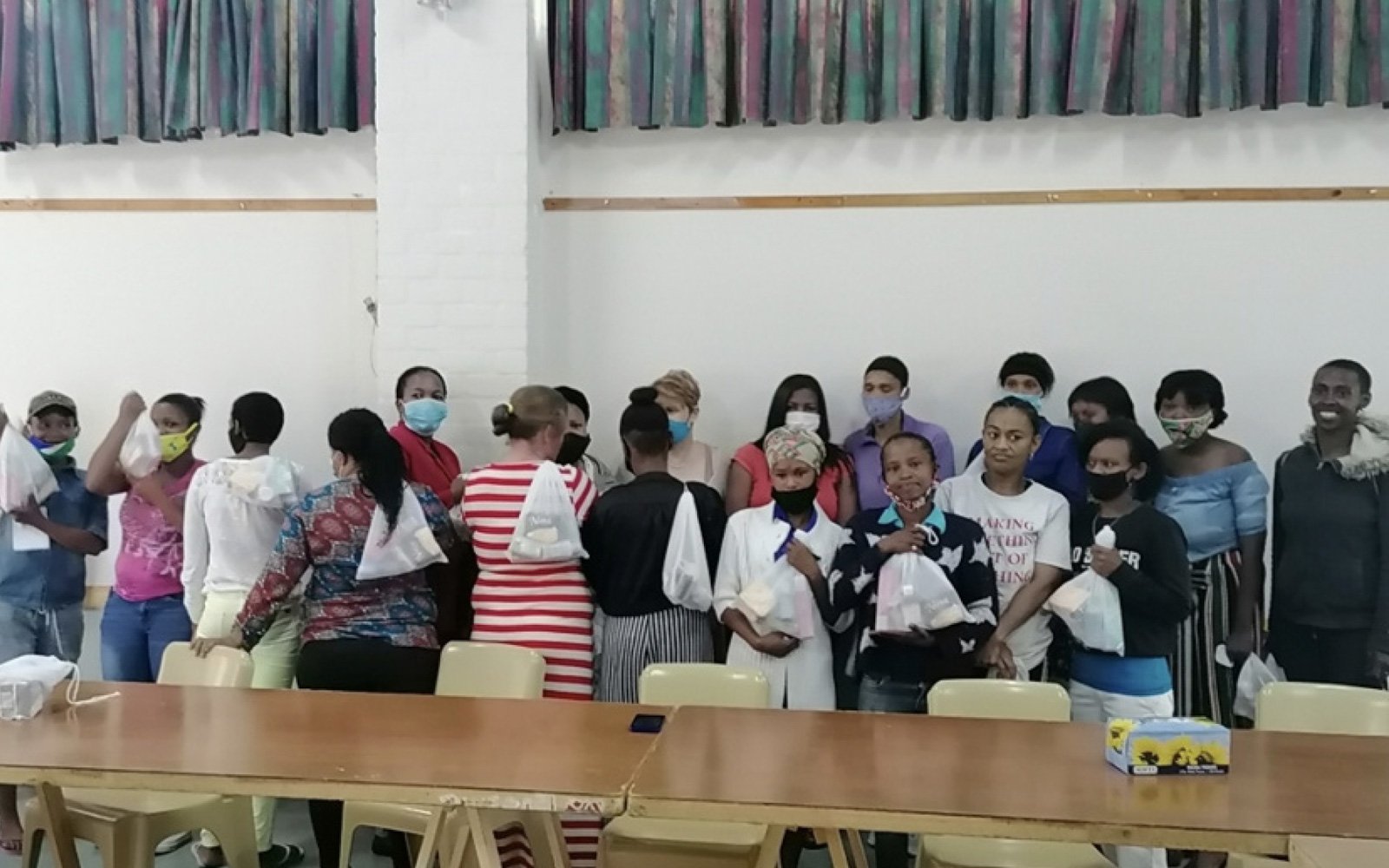What was your ‘pull’ to work in this sector?
In South Africa the rate of femicide and gender based violence (GBV) is the highest in the world. Women who use drugs (WUD) are even more at risk of experiencing these grave crimes when considering socio-economic status, living conditions and punitive drug policies. Seeing at risk women experiencing these preventable harms encourages us to continuously advocate for change, stand up for and be the voice of women who may not yet have the platform to do so themselves. Many of us have also experienced personal loss, trauma and abuse as women in South Africa and we are thus driven to effect change for
our sisters.
Can you please describe the work of SANPUD (South African Network of People who Use Drugs)/TBHIV Care and your role in the organisation?
SANPUD has a large cohort of WUD staff members. Many of whom have been exposed to stigmatising, discriminating and traumatic experiences. We are all passionate about sharing our lived experience and advocating for significant change in this sector. SANPUD envisions a world where people who use drugs (PUD) can make conscious, well-informed decisions around their drug use; one where drug policies do not increase the harm that PUD face but rather encourage access to health care, celebrate autonomy and challenge oppression, marginalisation, stigmatisation and economic exclusion.
How does SANPUD/TBHIV Care respond to the needs of women of who use drugs?
TBHIV Care provides harm reduction services including needle and syringe distribution, opiate agonist therapy (OAT) and other commodities for people who inject drugs in South Africa. SANPUD supports TBHIV care’s psychosocial services and coordinates networks and community consultations with at risk WUD. SANPUD works collaboratively with other partners and stakeholders to ensure inclusion across both urban and rural WUD communities. This includes sensitisation training, education, relationship strengthening and the distribution of essential women’s health and wellbeing commodities. Through partnerships with key role players such as HRI, INPUD and WHRIN, and supported by international donors such as UNODC, RCF, GFATM and OSFRA, we can host advocacy events and campaigns specifically for WUD who may otherwise not have access to these services. Although these may only be ad-hoc health events, this is our approach to addressing the gaps within service provision.
What issues would you say women who use drugs in South Africa face that may be different to those experienced in other countries/regions of the world?
Women in South Africa are exposed to extreme GBV and intimate partner violence, not only from community members but also from the individuals and entities who are supposed to protect them e.g. Metro Police, private security as well as other law enforcement agencies. This results in zero access to justice because women are less likely to report what happens to them when the perpetrators are those designated to protect them. Due to the fear of being ridiculed, victimised or blamed for what has
happened to them, women who use drugs are less likely to report these abuses to law enforcement agencies. WUD in rural areas of South Africa are largely unaccounted for and disregarded as services are nonexistent for substance use in these areas. In urban areas the funding is largely allocated to harm reduction services that are specifically tailored to those that inject drugs which leads to further exclusion of at risk women who may not be injecting substances.In South Africa we do not have alternate incarceration options for women and they are exposed to the same prison conditions as men. This also means that many WUD who are the primary care givers are often imprisoned for non-violent crime (possession, shop lifting etc.) and are then separated from their children who become orphans of the state.
In what ways does SANPUD/TBHIV Care adapt services to improve relevance and access for women?
- Through regular consultations and engagements with WUD who are accessing various services, we ensure that the quality of services is continually being reviewed.
- Consciously allocating funding to gender specific activities and commodities.
- Encouraging the establishment of women led networks
- Contributing to events such as Support Don’t Punish and Elimination of Violence Against Women who Use Drugs which are recognised on a global level to advocate for decriminalisation of PUD including WUD.
How does SANPUD/TBHIV Care support the meaningful involvement of women?
Through mainstream and social media as well as other communication platforms, we actively engage in discussions, consultation and services that benefit WUD communities throughout South Africa. Where possible we ensure representation of WUD at high level National and Regional engagements. SANPUD is also recognised Internationally for their awareness raising, research and advocacy efforts for these at risk women.
Do you have any insights, tips or suggestions for advocates wishing to establish or integrate services for women?
Wherever possible we use funds for events and campaigns aimed to improve the lives of women who use drugs, even if it is adhoc events. It is better to provide one box of sanitary commodities than none. If the opportunity is there to better or improve the lives of WUD, no matter how small it may seem, society needs to grab it. Decisions concerning WUD, need to be made by WUD.


